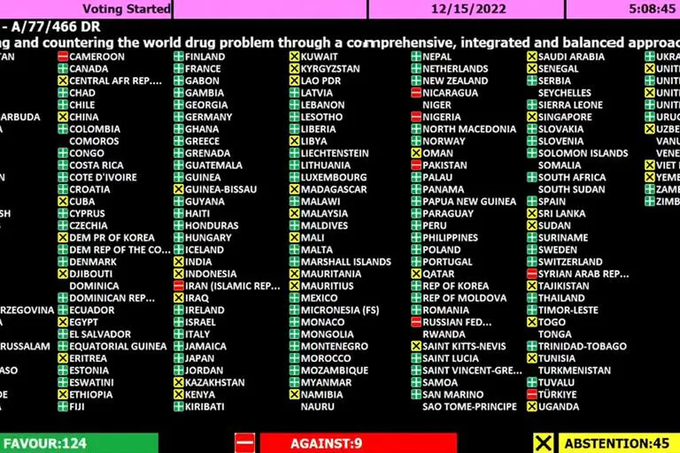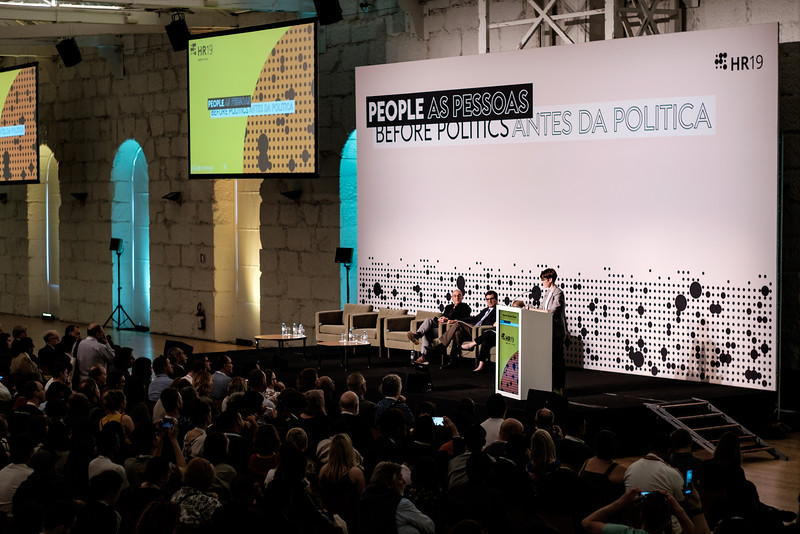Source: International Drug Policy Consortium (IDPC)
In a landmark report Human rights challenges in addressing and countering all aspects of the world drug problem released this month, the Office of the United Nations High Commissioner for Human Rights (OHCHR) denounced the failure of punitive drug policies and the global ‘WarOnDrugs’, and called for a new approach based on health and human rights, including through the responsible regulation of drugs.
The report outlines human rights challenges in addressing and countering key aspects of the world drug problem. It also offers an overview of recent positive developments to shift towards more human rights-centred drug policies, and provides recommendations on the way forward in view of the upcoming midterm review of the 2019 Ministerial Declaration and to contribute to the implementation of the 2030 Agenda for Sustainable Development.
To implement the recommendations laid down by the High Commissioner, the civil society, on the IDPC initiative, calls on the international community to reform and rebalance the global drug control regime, and national drug laws and policies. A collective statement, signed by over 100 civil society organisations, including DPNSEE, calls on the international community to act on the UN human rights chief’s groundbreaking call for systemic drug policy reform.
Ann Fordham, Executive Director at International Drug Policy Consortium, analyses in this article key takeaways and significance of the report, noting how its call for transformative change includes an unprecedented recommendation on the responsible regulation of currently-illegal drug markets.
IDPC’s advocacy note highlights the major gains from the 2023 OHCHR report and provides recommendations to Member States and UN entities for its effective implementation.




 Naomi Burke-Shyne, Executive Director of Harm Reduction International (HRI), said: ‘The evidence for harm reduction is indisputable. It is nothing short of disgraceful that governments continue to fail to support and invest in health services for some of the most marginalised people’.
Naomi Burke-Shyne, Executive Director of Harm Reduction International (HRI), said: ‘The evidence for harm reduction is indisputable. It is nothing short of disgraceful that governments continue to fail to support and invest in health services for some of the most marginalised people’. Ann Fordham, Executive Director of the International Drug Policy Consortium (IDPC), stated: ‘just over ten years left for countries to meet their global commitment to champion health, reduce inequalities, and provide access to justice for all, as enshrined in the UN’s Sustainable Development Goals, there has never been a more urgent need to strengthen political leadership at all levels. Faced with the current crisis, complacency can no longer be tolerated’.
Ann Fordham, Executive Director of the International Drug Policy Consortium (IDPC), stated: ‘just over ten years left for countries to meet their global commitment to champion health, reduce inequalities, and provide access to justice for all, as enshrined in the UN’s Sustainable Development Goals, there has never been a more urgent need to strengthen political leadership at all levels. Faced with the current crisis, complacency can no longer be tolerated’.
 The meeting began with a ministerial segment on 14 and 15 March aimed at taking stock of the implementation of the commitments made to jointly address and counter the world drug problem.
The meeting began with a ministerial segment on 14 and 15 March aimed at taking stock of the implementation of the commitments made to jointly address and counter the world drug problem.